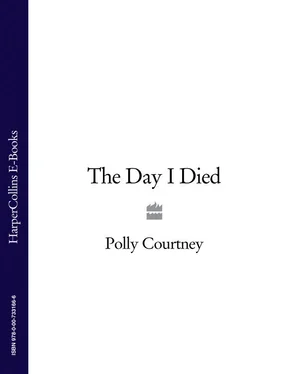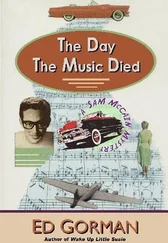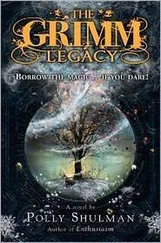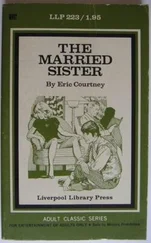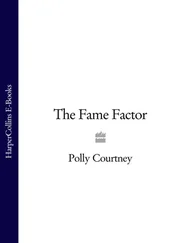1 ...8 9 10 12 13 14 ...20 Finally, she was in. Saskia Dawson winked back at her, all pouting and saucy and seductive. And blonde. Jo stared at the photo. It definitely wasn’t her face.
She looked at the image for a while, scouring it for something she recognised. Bleached, wavy hair, plump lips, alluring brown eyes…Saskia was gorgeous, in a cheap sort of way. She was probably in her early twenties, like Jo, but it was hard to glean much more from the photo. Her expression seemed to imply both naïve and sophisticated at once: flirtatious, yet coy. But anyone could look like that in a photo.
After a couple of minutes, Jo had to look away. She had stared at the face for too long. It was like saying a word over and over again; after a while, you weren’t even sure it was a word. Saskia Dawson could have been her sister, her friend or a complete stranger. She had no idea.
There were three options next to the profile picture: Add as Friend, Send a Message, View Friends. Jo clicked on the third link.
Saskia has 267 friends .
A long list of names appeared, each accompanied by a small photo. Jo ran an eye down the page, carefully scanning the smiles for one that resembled her own. Nobody looked familiar. Unless Jo had been one of the hilarious people who had used a picture of a washing machine or cartoon character instead of her face, then she wasn’t one of Saskia’s friends.
Some of the names had extra information too, like ‘London’ or ‘Brunel graduate’ or ‘Jake Dickson is off to Southend’ or ‘Kirsty Graham is soooooooo hungover’, but there was nothing useful. All Jo could glean was that Saskia Dawson had a lot of so-called friends who were all, like her, in their early twenties and that she probably lived in London. There seemed to be no link to the girl now masquerading as Jo Simmons.
Jo went back to the girl’s profile page and assessed her options. Add as Friend, or Send a Message. She could send a message, but what would it say? Hi, my names not actually Jo Simmons, but I had your name written on my hand. Any idea why? Jo didn’t fancy her chances of getting a reply.
She needed to know more about Saskia–needed to see her full profile. Perhaps the messages and postings and other photos would give her a clue as to where she lived, where she worked, which pubs she went to, that sort of thing. Jo stared at the face for a moment longer, then pressed Add as Friend.
‘Morning!’ squawked Trevor, the sound grating on her nerves as it did every day.
Jo responded with her usual mumbled greeting, going straight to the back of the teashop to dump her plastic bag. She wasn’t sure why he’d gone to the effort of getting a door key cut for her; he always arrived first.
She returned to the counter, ran the hot water, wiped the surfaces and brought the supplies through from the back. Her mornings had developed a kind of rhythm that was disconcertingly predictable. She could hardly believe that only just over a week had passed since she’d stumbled off the night bus into Trev’s Teashop.
‘I’ll open up,’ said Trevor, needlessly. Jo had learned her lesson on the second morning: opening up was the proprietor’s job. Other tasks he would happily delegate–and generally did–but winding out the awning each day was something he liked to be seen doing. It allowed him to show the world that he, owner and manager of Trev’s Teashop, Oxfordshire, was open for business. He probably thought of himself a bit like the Queen cutting the ribbon on a new institution, thought Jo, watching him sweat with the effort.
‘I’ve got an errand for you,’ said Trevor, propping the door open and waiting for her to look up. ‘I need these things posting,’ he said, patting a pile of letters on the counter.
Jo nodded and started to dry her hands.
‘No–not now. Post office only opens at nine. You’ll need to buy stamps. You can take the money from the till.’ He explained this last point slowly, in case it might be too complex for her.
Jo got back to stocking the fridge, wondering again what she had done for a living before she’d lost her memory. She hoped it was something more challenging than this.
Her contemplation continued as the morning progressed. This being a Friday, the usual eight o’clock rush was less frantic than usual and spread over a longer period. She was on autopilot: taking orders, serving drinks and doing as much ‘flitting’ as was possible, given the lack of seated customers and Trevor’s recent transition into more of a managerial role. Instead of manning the counter, he preferred to busy himself in the background, keeping an eye on Jo’s handiwork, making unhelpful suggestions and trying to strike up conversations with the commuters–most of whom did their best to ignore him.
Jo handed over a double espresso and watched as the suited customer added a mound of sugar, then another, then another. She frowned. The sugar wouldn’t dissolve in that small amount–anyone could tell that. But that wasn’t why Jo felt perplexed. She felt perplexed because of something going through her mind, something she knew.
The man’s espresso was becoming a suspension. That was the proper term for a liquid solution where not all the particles were dissolved. The man hurried out and Jo was left staring at the space where he had been. A suspension . Where had that word come from? And how had she known to use it?
Another customer came in and Jo found herself mechanically filling the shot-holder again, trying to work out what this new piece of information meant–if anything. Perhaps it was insignificant. It was probably something they taught in school that anybody might remember. Perhaps all this meant was that Jo had paid attention in school–which was something of a revelation in itself, but not a particularly interesting one.
Jo watched the dark brown liquid bubble into the paper cup, wondering whether coherent memories would come back to her or whether she’d have to piece things together from clues like this. If she didn’t start remembering things properly, then she’d only have half the picture. She might discover what she liked, what she was good at and what type of person she gravitated towards, but she wouldn’t know why . She wouldn’t know what, in her past, had caused her to be the way she was.
She handed over the coffee, caught up in a complex internal debate about nature versus nurture and the pros and cons of remembering her past. There was still a part of her that didn’t actually want to know what had happened. If they were bad memories, it might be better that she didn’t have them at all. Because once they were back, there was no way of un-remembering them.
What she really wanted was the option of remembering. As if her memory operated like a tap, she wanted the ability to turn it on, gently, then if it started gushing out unpleasantly and making a mess, she could turn it off again. The problem, of course, was that her memory didn’t operate like a tap. She wasn’t in charge. Nobody was. The more she tried to remember, the more elusive the memories became. She just had to wait, and observe, and jot things down.
The media was one possible source of information. Jo had been following the coverage of the bombing all week. She was half hoping, half dreading that one day she’d return from her shift to see her face on the lunchtime news–a grainy version of a holiday snap or a Christmas family photo–with her real name and the word ‘MISSING’ underneath. She insisted on helping Mrs P arrange the newspapers every morning so that she could skim the pages for a reference. But there was no such reference. Every article seemed to be a rehash of the initial coverage, and even that hadn’t said very much. As the week progressed, the news of the Buffalo Club bomb became less and less significant, and this morning the investigation hadn’t even warranted a mention. Clearly the media wasn’t going to help her very much.
Читать дальше
